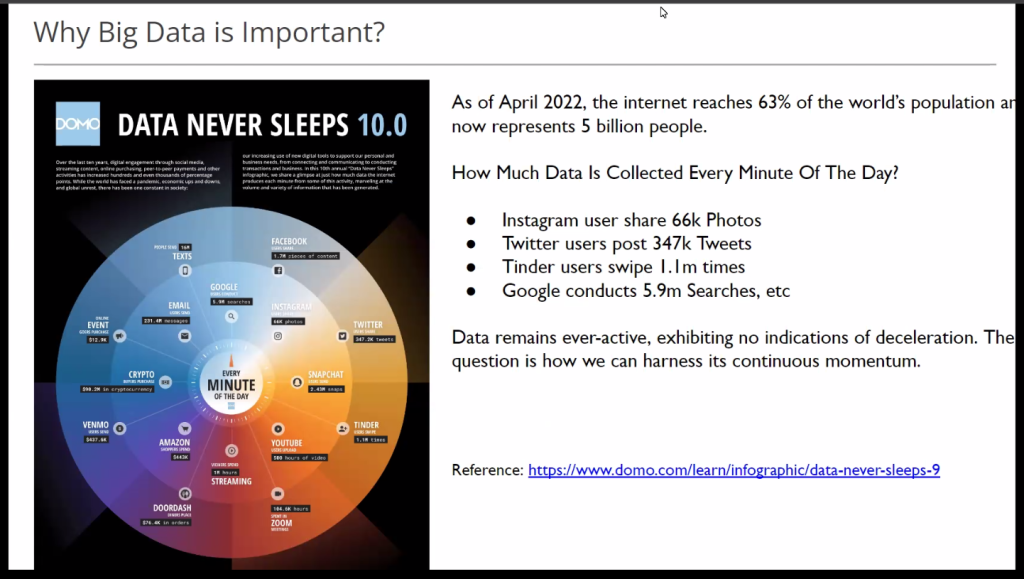The volume of data is increasing exponentially alongside advancements in time and technology. In the past, data served primarily as informational material, offering descriptive explanations to elucidate past events. However, in contemporary times, data—especially Big Data or large datasets—is being leveraged to anticipate future occurrences.
Dandy Masyaril Handoko, Chief Data Officer at Bank Neo Commerce, underscored the pivotal role of big data while delivering a guest lecture in the Trends and New Paradigm Innovation class within the MBA ITB on Saturday (3/2).
Numerous companies, including GoTo, Netflix, Walmart, and Amazon, have reaped Big Data’s benefits, as Dandy explained. When managed effectively, Big Data can yield myriad advantages for its users. These benefits encompass enhanced decision-making processes, improved user services, streamlined operations, and risk and fraud reduction, ultimately leading to increased revenue and profits.
For instance, insights gleaned from user transaction data, such as payment methods, promotional activities, order specifics, delivery logistics, and driver ratings, can serve as performance evaluations for drivers individually or as incentives for companies to reward consistently high-rated drivers.
Moreover, data can facilitate collaboration with governmental entities. For example, if the government contemplates restricting motorcycle traffic in a particular area, presenting data indicating escalating sales figures might influence decision-making regarding implementing restrictions. Similarly, showcasing merchant data and sales metrics could impact income levels, influencing governmental policies.

Big Data can also enhance decision-making processes by discerning supply and demand dynamics. For instance, in areas witnessing high order volumes with a significant portion left unfulfilled, interventions such as driver incentives or provision of shelter could alleviate the issue. Additionally, analyzing user interaction patterns through historical data enables personalized user experiences, thus enhancing customer satisfaction.
Furthermore, Big Data finds applications in the supermarket industry, aiding supply chain planning through demand forecasting, transportation logistics, warehousing, and inventory management.
While Big Data presents myriad conveniences, it also poses challenges. Optimal collaboration and intensive training are imperative from a human resources standpoint to meet the requisite competencies. Moreover, robust data management practices and stringent controls over data access are essential to safeguard information from unauthorized access, ensure compliance with data subject consent requirements, and maintain data integrity. Finally, continual enhancements to integrated data infrastructure are indispensable to optimize data management processes from a technological perspective.




